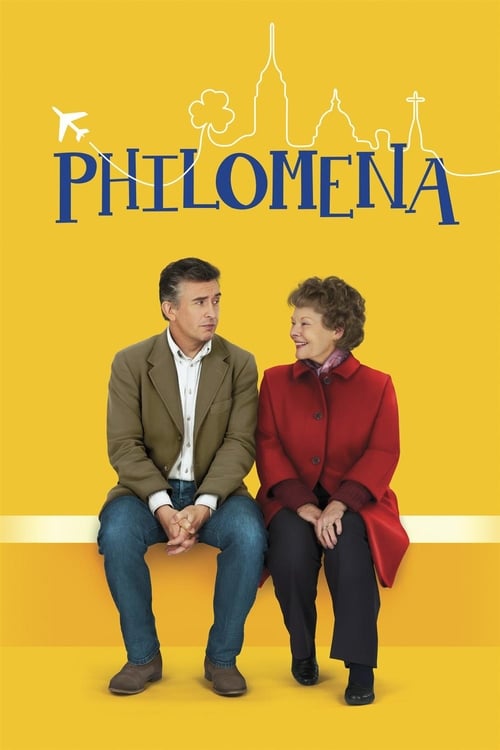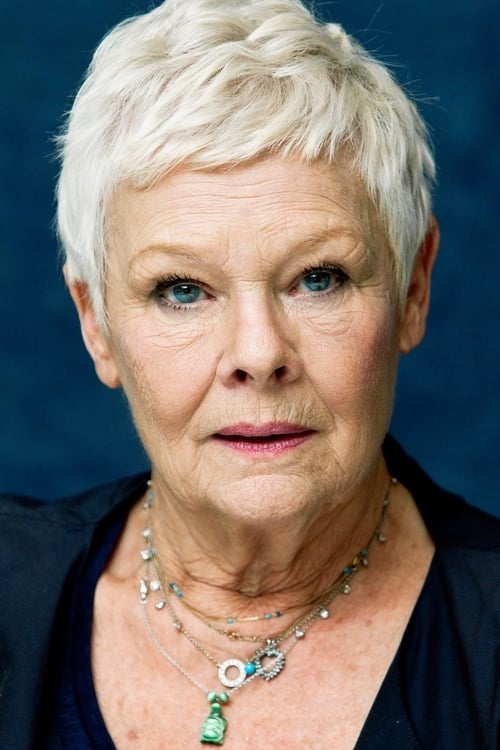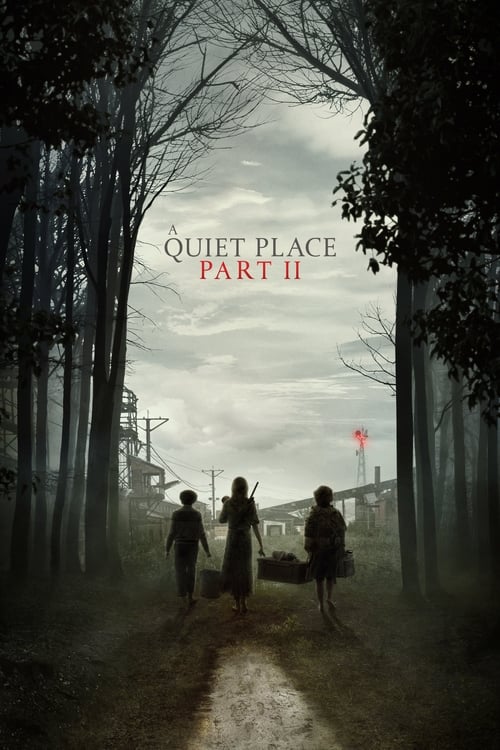
Philomena
A woman searches for her adult son, who was taken away from her decades ago when she was forced to live in a convent.
Dialogues from Movie Philomena
Quotes from Movie Philomena
Sound Tracks from Philomena by Alexandre Desplat
Two Worlds
Two Worlds by M. Ward, Main theme throughout the film
The Last Time
The Last Time by The Rolling Stones, Played during pivotal emotional moments
The Way You Look Tonight
The Way You Look Tonight by Frank Sinatra, Used in a significant reflective scene
Download App
Memorable Scenes from Movie Philomena
Philomena's Search Begins
Philomena Lee, an elderly woman, confides in journalist Martin Sixsmith about her past. She reveals how she was forced to give up her son Anthony when she was a teenager and spent decades regretting it. The weight of her story draws Martin into her search, setting the emotional tone for their journey together.
Context: Philomena’s secret past and longing to reunite with her lost son introduces the film’s themes of loss and redemption.
The Flashback of Loss
The film transitions to a heartbreaking flashback of young Philomena in the convent, giving birth and reluctantly handing over her son. The visual of her holding him tightly only to be torn away creates an intense emotional bond with the audience.
Context: This moment reveals the deep emotional trauma Philomena has faced, providing context for her determination to find her son.
Martin's Skepticism
Martin expresses doubt about whether they will ever find Anthony. Philomena's faith in him, despite the odds, makes Martin rethink his cynical views on love and faith. The tension between their worldviews adds depth to their relationship.
Context: This conflict underscores the film's themes of belief, hope, and the human spirit.
Uncovering the Truth
Through determination and a few leads, Martin and Philomena discover that Anthony was adopted by an American family. The moment they learn this information is charged with hope yet layered with fear of what comes next.
Context: This revelation elevates the stakes and keeps the audience engaged in Philomena’s quest.
The Emotional Reunion
Philomena and Martin finally meet with a woman who knew Anthony’s adoptive parents. As she reveals the details of his life, a mix of sorrow and joy fills the room, leading to an emotional high point in the story.
Context: This scene solidifies the emotional investment of the audience in Philomena's journey towards closure.
The Confrontation with the Church
Philomena confronts a priest about the convent’s practices and the church's role in her and her son’s suffering. Her raw pain and anger highlight the injustices faced by women in the system. This intense moment forces Martin to grapple with his views on faith and authority.
Context: The confrontation reveals broader societal issues related to faith, power, and accountability.
The Birth Certificate Discovery
Martin discovers Anthony's birth certificate, which shows Philomena's real name and details she never knew. The moment is rich with weight as Philomena finds a piece of herself in the document, reigniting her hope.
Context: This discovery is a pivotal stepping stone in Philomena’s quest, symbolizing self-discovery and resilience.
Martin's Change of Heart
After witnessing Philomena's unwavering faith and hope, Martin begins to soften. A brief moment of laughter between them while reminiscing becomes a turning point for their friendship.
Context: This moment highlights the power of human connection and exposes Martin's transformation throughout the quest.
The Heart-Wrenching Truth
The film reveals that Anthony had spent years looking for Philomena before his untimely death. The reveal strikes hard, showcasing the grief and what-ifs that linger. Philomena's devastation makes the scene palpable.
Context: This revelation serves as a climax in the narrative, highlighting the themes of loss and the permanence of time.
Philomena Visits Anthony's Grave
In a deeply emotional moment, Philomena visits Anthony's grave with flowers and a heartfelt note. Her sorrow is palpable, but she finds comfort in feeling close to him. The scene encapsulates love and forgiveness.
Context: This visit symbolizes closure for Philomena, wrapping her journey in a poignant and emotional way.
The Final Reflection
Towards the end, Philomena reflects on her journey with Martin, acknowledging the pain but also the love that remains. This bittersweet reflection captures the essence of her character arc.
Context: This moment connects back to the film's themes of love, loss, and the enduring hope that defines Philomena's character.
Martin's Revelation of Empathy
After witnessing Philomena's strength, Martin admits to his own emotional struggles, revealing a vulnerable side. This moment of honesty deepens their bond.
Context: Martin's openness illustrates the film's exploration of vulnerability and human connection.
The Laughter of Redemption
In a rare moment of levity, Philomena recounts a humorous memory about her time in the convent, prompting laughter between her and Martin. This moment provides relief amid the heavy themes.
Context: The laughter emphasizes how love and joy can exist alongside grief.
Philomena's Unyielding Faith
Despite her suffering, Philomena maintains her faith in God and love, proclaiming her belief in forgiveness and hope even after the tragedies she faced.
Context: This moment embodies Philomena's indomitable spirit, serving as a profound reminder of resilience.
The Encounter with the Nuns
Philomena confronts the nuns who ran the convent, demanding answers about her son. The visual tension is palpable as she speaks, filled with rage and determination.
Context: This confrontation showcases the struggle for accountability and justice, echoing the overarching themes of the film.
The Moment of Letting Go
Philomena passes her son’s belongings to Martin to keep as a tribute. This act of letting go is heart-wrenching but shows her acceptance of her past.
Context: This moment reflects personal growth and the themes of grief and healing.
The Emotional Farewell
As Martin prepares to leave after their journey, Philomena thanks him for helping her find closure. Their emotional farewell carries significant weight and speaks to their bond.
Context: This farewell symbolizes the growth of both characters and the transformations they underwent together.
The Power of a Mother's Love
Throughout the film, Philomena's love for Anthony is reflected in her unwavering pursuit of finding him. Her dedication encapsulates the essence of a mother’s love.
Context: This theme of maternal love ties the whole narrative together, making it universally relatable.
Closure in Acceptance
In the end, Philomena accepts the loss and finds peace, realizing that love can transcend time and tragedy. The final scenes are imbued with a sense of bittersweet resolution.
Context: Acceptance signifies the culmination of her journey and speaks to the resilience of the human spirit.
The Memory of Anthony
Philomena shares her fondest memories of Anthony, illustrating the warmth of their connection despite the years apart. Her recollections breathe life into her character while also providing a sense of joy amid sorrow.
Context: This moment reinforces the enduring power of love and reminiscence that defines her quest.
The Theme of Redemption
Philomena stands at a crossroads between her painful past and embracing hope for the future. Her vulnerability speaks volumes about human experience and the quest for redemption.
Context: This overarching theme underscores the film's narrative journey, showing the potential for healing and reconciliation.
The Dialogue That Defines Their Bond
Philomena and Martin engage in a heartfelt discussion about their differences in beliefs. As they share their perspectives, the resonance of their dialogue reveals deeper themes of trust and understanding in their unlikely friendship.
Context: This exchange captures the emotional evolution of their relationship and highlights the film's critical themes of empathy and connection.
Martin’s Personal Growth
In the final act, Martin reflects on how the experience has changed him. He expresses newfound appreciation for compassion and life's complexities, wrapping up his character arc.
Context: This moment illustrates growth and understanding, reinforcing the film’s message on the importance of empathy in human experience.
The Surprise Ending
The film concludes with Philomena leaving a small sentiment at Anthony’s resting place. The simple act of remembrance lingers in the air, leaving a profound mark on the audience’s hearts.
Context: This ending resonates deeply, offering closure while remaining open to personal interpretation about love and loss.
Download App








